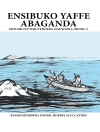All social researchers need to think about ethical issues. Their salience has recently been increased by the pressures of ethical regulation, particularly in the case of qualitative research. But what are ethical issues? And how should they be approached? These are not matters about which there is agreement. Ethics in Qualitative Research explores conflicting philosophical assumptions, the diverse social contexts in which ethical problems arise, and the complexities of handling them in practice.
The authors argue that the starting point for any discussion of research ethics must be the values intrinsic to research, above all the commitment to knowledge-production. However, the pursuit of inquiry is rightly constrained by external values, and the book focuses on three of these: minimising harm, respecting autonomy, and protecting privacy. These external values are shown to be far from unequivocal in character, often in conflict with one another (or with the commitments of research), and always subject to situational interpretation and practical judgment. Nevertheless, it is contended that in the present challenging times it is essential that qualitative researchers uphold research values.
Martyn Hammersley is Professor of Educational and Social Research at The Open University.
Anna Traianou is Senior Lecturer in the Department of Educational Studies, Goldsmiths, University of London.
Table of Content
What Is Ethics?
The Research Ethos
The Risk of Harm
Autonomy and Informed Consent
Privacy, Confidentiality and Anonymity
Conclusion: Challenging Moralism
References
About the author
Anna Traianou is Senior Lecturer in the Department of Educational Studies, Goldsmiths, University of London. She has carried out research into the nature of teacher expertise, and, in particular, the ways in which knowledge and learning are implicated in educational practice. This resulted in her book, Understanding Teacher Expertise in Primary Science: A Sociocultural Approach (SENSEpublishers, 2006). Anna has also worked on the relationship between research evidence and practical wisdom, exploring some of the problems facing any notion that effective teaching can simply be an application of the results of scientific research. She has a particular interest in qualitative research methodology and theories of science.












